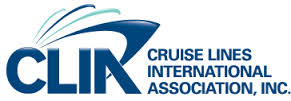 Brussels, May 22nd, 2014 – CLIA Europe, the association representing Europe’s multi-billion euro cruise industry, and HELCOM, the intergovernmental organisation governing the Convention on the Protection of the Marine Environment of the Baltic Sea Area, have launched a joint survey on cruise ships’ sewage delivery in the Baltic Sea. This exercise aims to gather detailed information on sewage delivery needs and available facilities ahead through the course of the summer season.
Brussels, May 22nd, 2014 – CLIA Europe, the association representing Europe’s multi-billion euro cruise industry, and HELCOM, the intergovernmental organisation governing the Convention on the Protection of the Marine Environment of the Baltic Sea Area, have launched a joint survey on cruise ships’ sewage delivery in the Baltic Sea. This exercise aims to gather detailed information on sewage delivery needs and available facilities ahead through the course of the summer season.
Following the designation of the Baltic Sea as a “special area” for passenger ships in 2011 under the International Maritime Organisation’s MARPOL Annex IV on ships’ sewage, this survey will help establish what improvements are needed to accomplish the intended objectives, namely the reduction of nutrients that impact on the region’s fragile marine environment.
Over the coming weeks, CLIA Europe will encourage its cruise line members to complete the survey in order to gain a better industry wide understanding of their sewage delivery needs as well as to assess the industry’s experiences regarding the region’s port reception facilities.
The results of this exercise will allow HELCOM to advance in its work towards ensuring that the Baltic Sea ports fulfil the criteria of adequacy related to their sewage facilities. HELCOM is required to report to IMO’s Marine Environment Protection Committee (MEPC) that the specified criteria of adequacy has been fulfilled before the “special area” regulations take effect in January 2016.
Robert Ashdown, CLIA Europe’s Secretary General, said:
“CLIA Europe’s members strongly believe that everything should be done to reduce eutrophication in the Baltic Sea. For this reason, the cruise industry works closely with HELCOM and other stakeholders to minimise the environmental impact of its activities. Pursuing a comprehensive assessment of port reception facilities and cruise ships’ sewage delivery needs in the region is a key step in this process. We are confident that this exercise will bring us closer to ensuring the long-term sustainability of the Baltic Sea’s fragile ecosystem.
1. About CLIA
Cruise Lines International Association (CLIA) is the world’s largest cruise industry trade association with representation in North and South America, Europe, Asia and Australasia. CLIA represents the interests of cruise lines, travel agents, port authorities and destinations, and various industry business partners before regulatory and legislative policy makers. CLIA is also engaged in travel agent training, research and marketing communications to promote the value and desirability of cruise holiday vacations with thousands of travel agency and travel agent members. CLIA’s Associate Member and Executive Partner programs include the industry’s leading providers of supplies and services that help cruise lines provide a safe, environmentally-friendly and enjoyable holiday vacation experience for millions of passengers every year. For more information on CLIA, the cruise industry, and CLIA-member cruise lines and travel agencies, visit www.cliaeurope.eu. CLIA can also be followed on the Cruise Lines International Association’s Facebookand Twitter fan pages, and CEO Christine Duffy can be followed @CLIACEO and cruising.org/ceoblog.
2. About HELCOM
Established in 1974, HELCOM – the Baltic Marine Environment Protection Commission, also known as Helsinki Commission – is an intergovernmental organisation governing the Convention on the Protection of the Marine Environment of the Baltic Sea Area. The Contracting Parties are Denmark, Estonia, the European Union, Finland, Germany, Latvia, Lithuania, Poland, Russia and Sweden.





